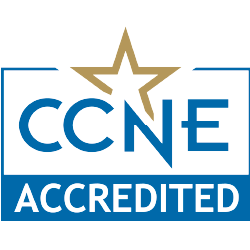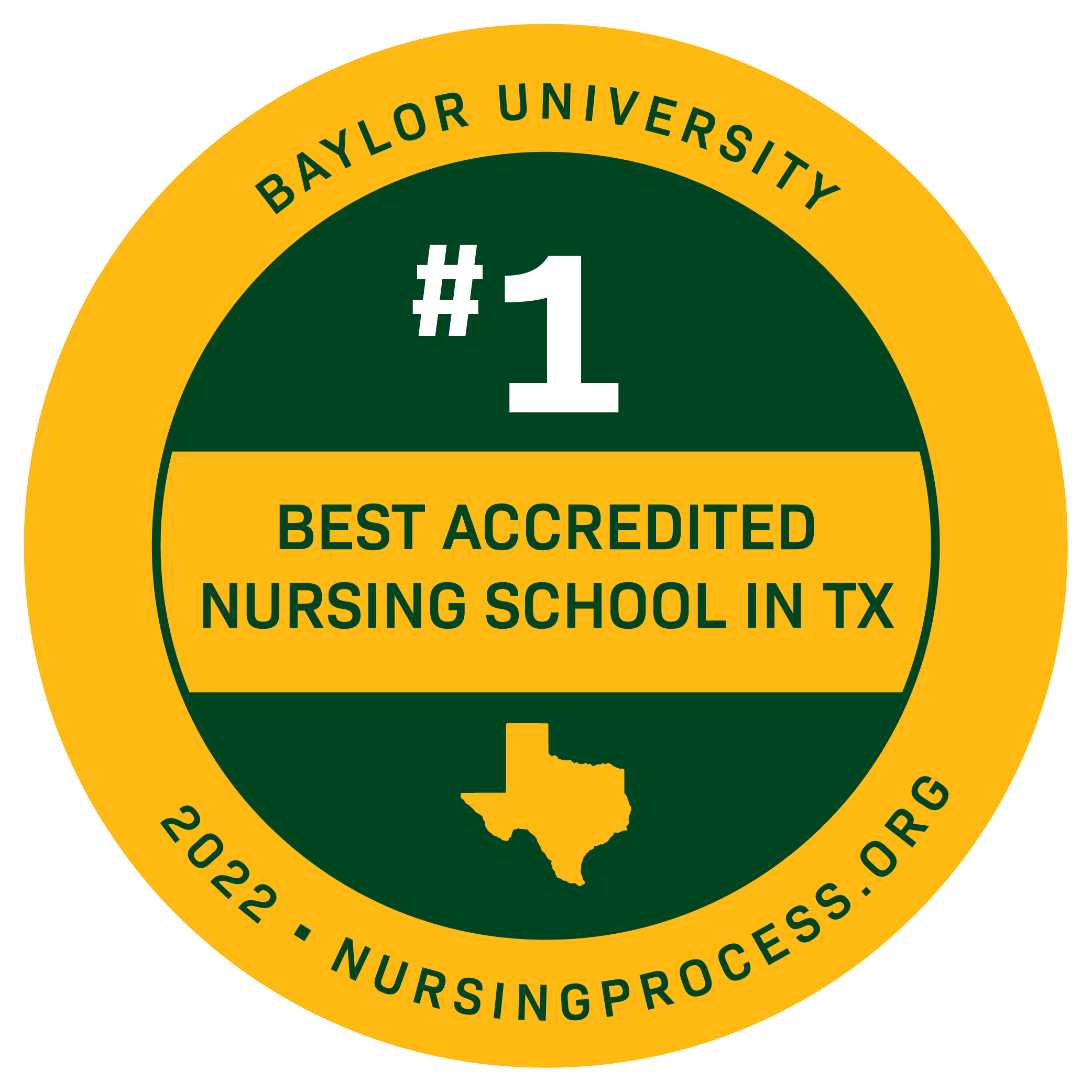Welcome
This is your comprehensive digital program guide where you will find all the information you need regarding the DNP – Family Nurse Practitioner program.
Ready for the next step?
Schedule an appointment with your dedicated Enrollment Advisor to discuss the program details, admissions requirements, tuition and financial and more.
Online Doctor of Nursing Practice - Family Nurse Practitioner
The online Doctor of Nursing Practice - Family Nurse Practitioner program is the optimal pathway for actively practicing registered nurses with a BSN or MSN who are seeking to lead the delivery of primary care to patients across the lifespan. This program thoroughly prepares nurses with the advanced knowledge and practical skill set necessary to lead in nursing practice and positively impact patient outcomes from the highest levels.
Two entry options are available:
BSN to DNP
75 Credits
Just over 3 years to completion
$1,150 per credit hour
Post-Master's DNP
38-75 Credits
2 to 3 years to completion
$1,150 per credit hour
Baylor's Online DNP FNP Program Fast Facts
-
- Main coursework is online with on-campus immersions throughout the program
- Practicum requirement total: 1,125 hours
- Courses are 15 weeks, with three admission intakes per year
- Total credits: 75
- Clinical Placement Support for students
- Program length may vary depending on background
-
-
-
-
-
- Main coursework is online with on-campus immersions throughout the program
- Practicum requirement total: 1,125 hours
- Courses are 15 weeks, with three admission intakes per year
- Total credits: 75
- Clinical Placement Support for students
- Program length may vary depending on background
DNP-FNP Course Curriculum
The online DNP-FNP program track focuses on developing nurses as holistic caregivers through an advanced curriculum that includes an in-depth study of pathophysiology, assessment, informatics, pharmacology, healthcare policy and business, ethics, epidemiology, and servant leadership. See featured courses and course descriptions below.
Connect with one of our friendly Enrollment Advisors for access to this year’s academic catalog for the Louise Herrington School of Nursing, featuring a complete DNP course list for this track along with full course descriptions.
This course examines key factors used to assess complex health care organizations. Identification of optimal outcomes and development and implementation strategies that improve patient care quality and safety will be examined.
Prepares the Family Nurse Practitioner to assume continued responsibility for evaluation and management of acute common and increasingly complex problems in primary care. A systematic approach to current evidence-based assessment, diagnostic testing, diagnosis, and management options is taught from a primary care perspective. Indications for collaboration, consultation, and/or referral to other health care providers are emphasized as an integral part of the nurse practitioner’s role.
Graduate-level standing. Application of nursing leadership theories and models in the delivery of advanced practice nursing care to culturally diverse clients (individuals, families, organizations, and global society).
This course focuses on the development of scientific knowledge relevant to advanced practice nursing. The emphasis of the course is on research methodology and the critical appraisal of evidence derived from quantitative and qualitative inquiry. Skills necessary for evidence-based practice are developed.
Expansion of prerequisite knowledge of health and physical assessment. Comprehensive physical, psychosocial, spiritual, and cultural assessments across the life span are studied. Health promotion and disease prevention during life transitions are incorporated into the assessment process. Advanced health assessment and disease prevention concepts and techniques are practiced. Beginning technical skills used in clinical diagnostic procedures are included
Important Dates
Next Application Deadline: Now accepting applications. Seating is limited.
Next Start Term Date: January 2025
Clinical Placement Support
Baylor University is proud to provide Clinical Placement Support Services for the Online Doctor of Nursing Practice (DNP) - Family Nurse Practitioner program. Our goal is to collaborate with you in finding high-quality clinical placement options to help you apply newly gained knowledge, values, and skills. We help to take the stress out of the process so that you can focus on your coursework and are prepared and equipped to be a change agent in your field.
We help source, secure and maintain placement sites for all our online DNP students.
We help streamline the placement process so you can focus on your coursework and clinical rotations.
We do the heavy lifting to confirm your placement site meets all the necessary clearances.
Frequently Asked Questions About Clinical Placement Services
Baylor University’ Online DNP-FNP program requirements for clinical hours are:
- NUR 5452 - Advanced Health Assessment
- NUR 5250 or 5251 - Domestic Low Resource or FNP International Clinical
- NUR 5153 - Advanced Practice FNP I & NM I Primary Care Practicum
- NUR 5450 - FNP Residency
- NUR 6V76 - Advanced Practice Nursing Residency
- NUR 5359 - Advanced Family Practice II
Shortly after enrollment, you will be provided with a placement intake form you are required to complete that captures your competencies, experience, and placement preferences.
Baylor University will collaborate with you to identify a quality placement site and preceptor. While the placement team is securing sites and preceptors, you will be responsible for completing clinical clearance requirements in preparation for placement, including:
- Drug screening
- Background check
- Recommended vaccinations
You will not be permitted to begin your placement rotations without your clearances complete. Once the sites have been approved by the School of Nursing, Baylor University will share the placement site details with you prior to placement.
The Placement team will ensure your clinical site and preceptor are located within your regional area and meet all the requirements - from restricted settings and support to education and experience. Once you have received your site information, your only responsibility will be to contact the site and discuss your clinic hours.
Clinical faculty and your preceptor will be your primary support during clinical rotation courses. You will also record your assessment /recommendations in SOAP (Subjective, Objective, Assessment and Plan) Notes. This will be reviewed and critiqued so you can achieve better practice methods.
You will be evaluated on a pass/fail basis. There are no letter grades given during clinicals. With the repetition of practice and assessment, as well as a variety of patient cases, you will learn the clinical skills necessary to confidently pursue a career providing primary care.
The Baylor University Online Experience
Find out why Baylor University’s Online DNP degree program is the best choice for registered nurses seeking preparation at the highest level of nursing practice.
Online DNP-Family Nurse Practitioner Program Outcomes
The Online DNP-Family Nurse Practitioner program outcomes are designed to meet the standards of professional organizations such as the American Organization of Nurse Leadership (AONL), American Association of Colleges of Nursing (AACN), etc.
- Essential I: Scientific Underpinnings for Practice
- Essential III: Clinical Scholarship and Analytical Methods for Evidence-Based Practice
- Essential II: Organizational and Systems Leadership for Quality Improvement and Systems Thinking
- Essential IV: Information Systems/ Technology and Patient Care Technology for the Improvement and Transformation of Health Care
- Essential V: Health Care Policy for Advocacy in Health Care
- Essential VI: Interprofessional Collaboration for Improving Patient and Population Health Outcomes
- Essential VII: Clinical Prevention and Population Health for Improving the Nation’s Health
- Essential VIII: Advanced Nursing Practice
Upon successful completion of the course of study, graduates will be eligible to sit for national Family Nurse Practitioner certification examinations offered by the American Nurses Credentialing Center (ANCC) and the American Academy of Nurse Practitioners (AANP). The program of study conforms to the education guidelines from the State of Texas and the National Organization of Nurse Practitioner Faculties (NONPF).
Essential I and III
Synthesize scientific evidence and methods to design, direct, and evaluate strategies to promote effective Patient-Centered care.
Essential II
Incorporate leadership skills and interprofessional team-building strategies to improve quality metrics within health care systems, organizations, and diverse practice settings.
Essential IV
Employ information systems and technology in the delivery of transformative health care.
Essential V
Advocate for evidence-based health policy to improve local, national, and/ or global patient and health population outcomes.
Essential VI
Utilize effective interprofessional communication and collaborative skills to facilitate improvement in population health.
Essential VII and VIII
Demonstrate advanced levels of clinical judgment and systems thinking in designing, delivering, and evaluating evidence-based care for clinical prevention and population health.



